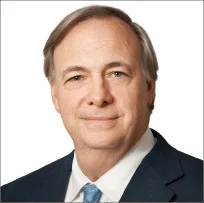A long time ago, I stumbled upon this gem/manifesto by Ray Dalio, the billionaire founder of hedge fund giant Bridgewater ($154Bn AUM). It doesn’t contain his investment principles or Bridgewater’s secret sauce (which is likely constantly evolving anyway, powered by talented and creative minds). Instead, it offers a wealth of general advice on life, collected by Dalio over a lifetime of observation and reflection. The excerpts below on mistakes are merely the tip of the 106-page iceberg. Enjoy! Mistakes
“Since I started Bridgewater, I have gained a lot more experience...mostly by making mistakes and learning from them. Most importantly:
I learned that failure is by and large due to not accepting and successfully dealing with the realities of life, and that achieving success is simply a matter of accepting and successfully dealing with all my realities.
I learned that finding out what is true, regardless of what that is, including all the stuff most people think is bad—like mistakes and personal weaknesses—is good because I can then deal with these things so that they don’t stand in my way.
I learned that there is nothing to fear from truth. While some truths can be scary—for example, finding out that you have a deadly disease—knowing them allows us to deal with them better. Being truthful, and letting others be completely truthful, allows me and others to fully explore our thoughts and exposes us to the feedback that is essential for our learning.
I learned that being truthful was an extension of my freedom to be me. I believe that people who are one way on the inside and believe that they need to be another way outside to please others become conflicted and often lose touch with what they really think and feel. It’s difficult for them to be happy and almost impossible for them to be at their best. I know that’s true for me.
I learned that I want the people I deal with to say what they really believe and to listen to what others say in reply, in order to find out what is true. I learned that one of the greatest sources of problems in our society arises from people having loads of wrong theories in their heads—often theories that are critical of others—that they won’t test by speaking to the relevant people about them.
I learned that everyone makes mistakes and has weaknesses and that one of the most important things that differentiates people is their approach to handling them. I learned that there is an incredible beauty to mistakes, because embedded in each mistake is a puzzle, and a gem that I could get if I solved it, i.e., a principle that I could use to reduce my mistakes in the future. I learned that each mistake was probably a reflection of something that I was (or others were) doing wrong, so if I could figure out what that was, I could learn how to be more effective. I learned that wrestling with my problems, mistakes, and weaknesses was the training that strengthened me. Also, I learned that it was the pain of this wrestling that made me and those around me appreciate our successes.”
“I believe that our society's ‘mistakephobia’ is crippling, a problem that begins in most elementary schools, where we learn to learn what we are taught rather than to form our own goals and to figure out how to achieve them. We are fed with facts and tested and those who make the fewest mistakes are considered to be the smart ones, so we learn that it is embarrassing to not know and to make mistakes. Our education system spends virtually no time on how to learn from mistakes, yet this is critical to real learning. As a result, school typically doesn’t prepare young people for real life—unless their lives are spent following instructions and pleasing others. In my opinion, that’s why so many students who succeed in school fail in life.”
“I met a number of great people and learned that none of them were born great—they all made lots of mistakes and had lots weaknesses—and that great people become great by looking at their mistakes and weaknesses and figuring out how to get around them. So I learned that the people who make the most of the process of encountering reality, especially the painful obstacles, learn the most and get what they want faster than people who do not. In short, I learned that being totally truthful, especially about mistakes and weaknesses, led to a rapid rate of improvement and movement toward what I wanted.”

